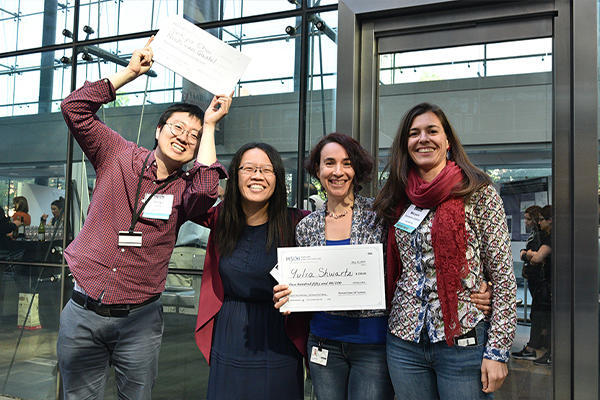Research
Disease Programs
We channel world-class resources, both intellectual and technological, toward some of the most prevalent, devastating diseases for which stem cell research holds promise.
HSCI provides early funding for innovative projects in stem cell research through Seed Grants, Junior Faculty Programs, and the Barry Family HSCI Innovation Award. These focused funds allow scientists to pursue "high risk/high reward" avenues of research that might be difficult to fund from more traditional sources.
HSCI also recognizes the achievements of early-stage researchers at an annual retreat, which is a unique opportunity for our researchers to connect with one another and forge new collaborations.

Seed Grants
We support ideas that are not typically funded by traditional sources, either because the research is too early-stage or the researcher too junior to compete with larger laboratories.
Junior Faculty Programs
We support highly collaborative, “high risk, high reward” projects in which young HSCI faculty with diverse expertise pool their efforts to tackle a major, shared challenge.
Barry Family HSCI Innovation Award
We support innovation by early career investigators that has the potential to transform the field of stem cell research.
Our approach
Stem cells have already changed medicine, saving the lives of leukemia patients for over 50 years. Today, technological breakthroughs have opened up vast potential to use stem cells to understand and treat human disease. HSCI researchers are harnessing the potential of stem cells in a number of ways:
Replace
Different types of stem cells can be used to develop cell-replacement therapies. For example, a diabetes patient’s damaged insulin-producing cells could be replaced with healthy ones created from stem cells, which have been corrected using gene editing. We are expanding this approach to address many diseases.
Reprogram
Stem cells can be reprogrammed to become specific tissues, such as neurons or heart tissues. This helps scientists study human diseases directly in a dish, and test a potential treatment safely outside the body before giving it to a patient.
Repair
Understanding how different organs repair themselves following injury or disease helps HSCI scientists identify ways to stimulate a patient’s own stem cells to regenerate, for example using drugs to regrow inner ear cells and restore hearing.
Learn more about stem cells and medicine
Comprehensive resources are hosted by the International Society for Stem Cell Research (ISSCR) and the Alliance for Regenerative Medicine.

Stem-cell research news delivered straight to your inbox.
Sign up for the HSCI monthly newsletter
